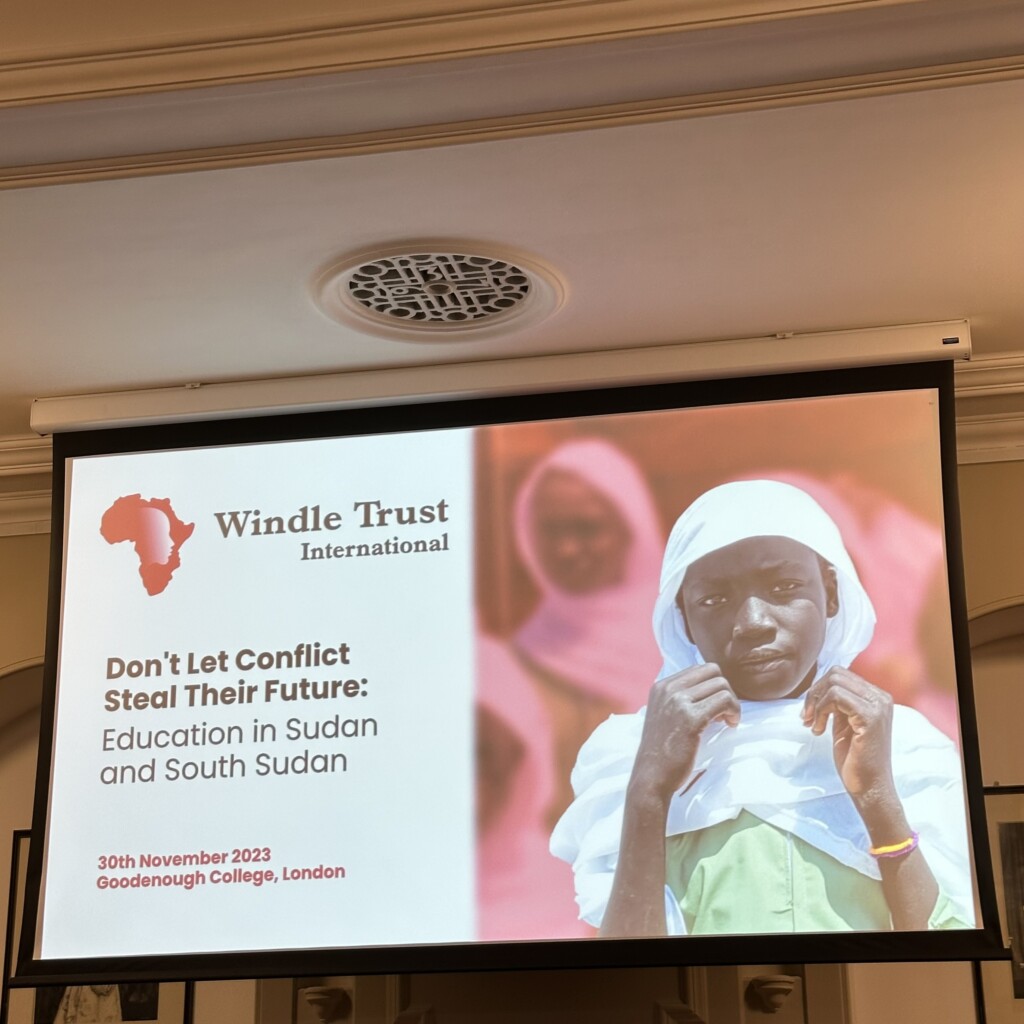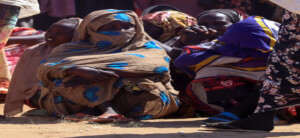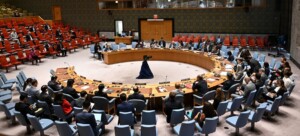‘Don’t Let Conflict Steal Their Future’: Sudanese education conference held in London

"Don’t Let Conflict Steal Their Future" - organised by Windle Trust International (WTI), held at Goodenough College, London, on November 30 (Picture: Nadia Awad / RD)
Report and main picture by Nadia Awad
As 19 million Sudanese children are out of education due to the seven-month war between the Sudan Armed Forces (SAF) and the Rapid Support Forces (RSF), educational activists and groups gathered at a Sudan education conference on Thursday, November 30, for talks and networking dedicated to raising awareness about the critical issue of education in Sudan and South Sudan, the transformative role of education in society, as well as future visions of Sudanese schooling.
The education conference entitled Don’t Let Conflict Steal Their Future held at Goodenough College, London, on November 30, was organised by Windle Trust International (WTI), a UK-based charity that helps marginalised communities and people affected by conflict to enjoy good quality education. Their work centres on providing and facilitating access to quality education in Eastern Africa. WTI manages its programmes from its offices in Sudan, South Sudan, and the UK, whilst enjoying close relations with its affiliated charities in Kenya and Uganda.
The opening talk by David Masua, CEO of WTI since 2020, who was once a refugee from war-torn South Sudan and was supported to complete his education, touched on how the support he was given was critical to his life and career now. He outlined the devastating impact of the war in Sudan, where more than 7.1 million are displaced, more than half of whom are children. Around 10,400 schools in the country have either been destroyed or occupied by militaries.
Masua discussed the role of education as the “fourth pillar of humanitarian aid” after food, water, and shelter. He referenced various work done by WTI, including training teachers, administering exams, and offering psychosocial support for children, concluding that “investing in children is giving hope”.
According to a joint statement by UNICEF and Save the Children in October, an estimated 19 million Sudanese children are out of school, with numbers steadily increasing. Out of this total, one in every three children in the country, about 6.5 million, have lost access to school due to increased violence and insecurity in their region, with at least 10,400 schools shuttered in conflict-affected areas.
Even before the conflict erupted in April, nearly seven million children were already out of school in a country grappling with poverty and instability, the statement says.
The second talk was delivered by Jean Hartley, Professor of Public Leadership at the Open University, who reported on the Ibba Girls’ School in South Sudan. This school teaches 360 primary and secondary school-aged girls. Hartley explained how WTI supports the school via educational training, referring to the establishment as an “island of peace”, whilst expressing desires for similar establishments in Sudan after the war.
Eiman Kheir, a Public Policy Manager for Meta, gave a talk titled Learning Without Limits: How Technology is Removing Barriers to Education. Kheir asserted that ‘digital skills are pivotal in a crisis’, and discussed the role of WhatsApp and Facebook as community tools and lifelines in Sudan, citing functions such as live-location updates. Regarding future difficulties in re-integrating children into education after the war, Eiman proposed a stronger use of digital education as a faster means of providing basic education.
The event was also attended by Agnes Oswaha, the South Sudanese Ambassador to the UK. In her talk, entitled Education in a Post-Conflict World: Lessons from South Sudan, Oswaha offered optimistic sentiments and expressed South Sudan’s commitment to peace in the region. Her talk explained the government’s prioritisation of education in its national budget, and emphasised the pivotal role of teaching future generations.
As previously reported by Radio Dabanga, Sudan’s education sector is divided over the decision to resume studies this month, with many schools stressing their inability to find alternatives to shelter the displaced due to the difficulty of constructing camps with a lack of appropriate funding. Many believe it is important to stop the war before considering education resumes.
Many educators have also expressed their apprehensions regarding the re-opening of schools and universities, due to schools becoming shelters and the continued non-payment of teachers since the outbreak of the war.
Activists from the emergency room in El Gedaref told Radio Dabanga that “approximately 50 schools in the state have turned into shelters for displaced people, and the humanitarian conditions there are deteriorating rapidly.”
The education conference coincided with the WTI Big Give Campaign fundraiser, which reached its aim of £60,000. Proceeds will go towards providing access to quality education and training for refugees and those displaced or affected by the conflict in Sudan.
Through the conference’s aim of facilitating “thought-provoking discussions, presentations, and personal stories”, the event sought to shed light on the impact of conflict on education and explore ways to empower children to build a brighter future after the war.











 and then
and then